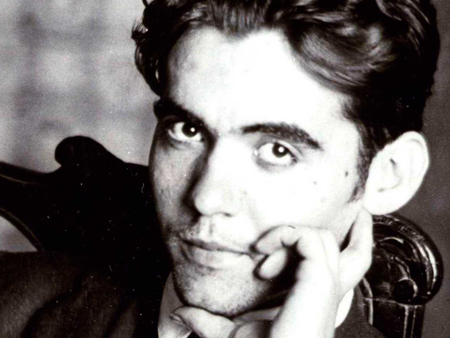Federico García Lorca in Granada

Our Spanish language school offers a special programme related to the poet Federico García Lorca.
Federico García Lorca is one of the most important poets to emerge in Spain's cultural history.
He was born in the village Fuentevaqueros near Granada in 1898. Although the family moved to Granada when he was a child, they continued to spend summers in the countryside. Here Lorca did much of his writing and started to emphasize the importance of his rural background.
His contribution to Spanish literature is unquestionable and if you study Spanish literature you will come across his works. His most famous masterpieces are Bodas de Sangre, Yerma and La Casa de Bernada Alba. During the period he was writing, many important artists emerged in Spain, such as Buñuel and Dalí. This group came to be known as the Generación del 27. Poets such as Rafael Alberti, Jorge Guillén and Luis Cernuda were members of this circle. This poetic period is marked by important Lorca publications such as Romancero Gitano or the Poema del Cante Jondo. This movement was crippled by the Spanish Civil War.
Federico Garcia Lorca moved to Madrid in 1919, but it was not until 1927 when he started to become respected as a dramatist. He was very successfull in Barcelona with his play Mariana Pineda. In 1928 he decided to leave Spain and his family arranged for him to go to New York. Here he wrote Poeta en Nueva York, in which he used a variety of original poetic techniques to express his feelings of isolation in the city. In 1930 Lorca returned to Spain and in 1931 he became the director of the university theatre company La Barraca. In July of 1936 he returned to Granada.
A month later he was arrested by the fascists and shot, leaving behind a number of unfinished manuscripts. There are still questions surrounding Lorca's death. Many say he was apolitical and had friends on both sides of the conflict in Spain, suggesting that the motives of his killing were unrelated to politics. It has also been proposed that his sexual orientation could have played a role in his death. A general ban was placed then on his works and was not removed until 1953.
Our school offers a special programme related to the work of Federico García Lorca as a complement to an intensive Spanish course.












